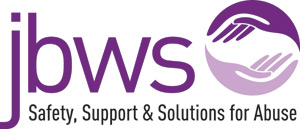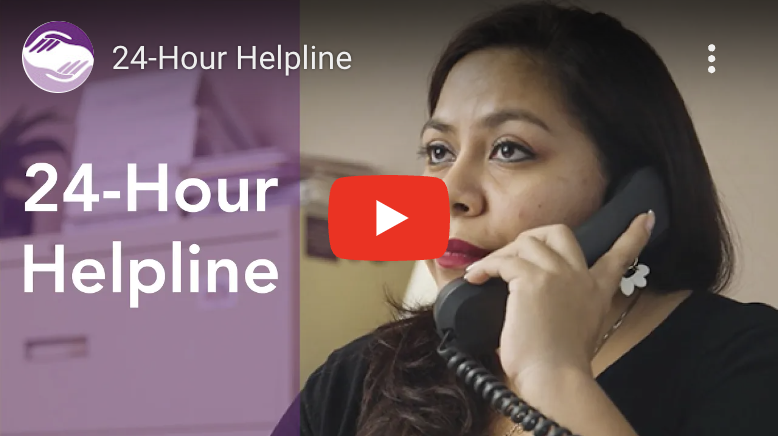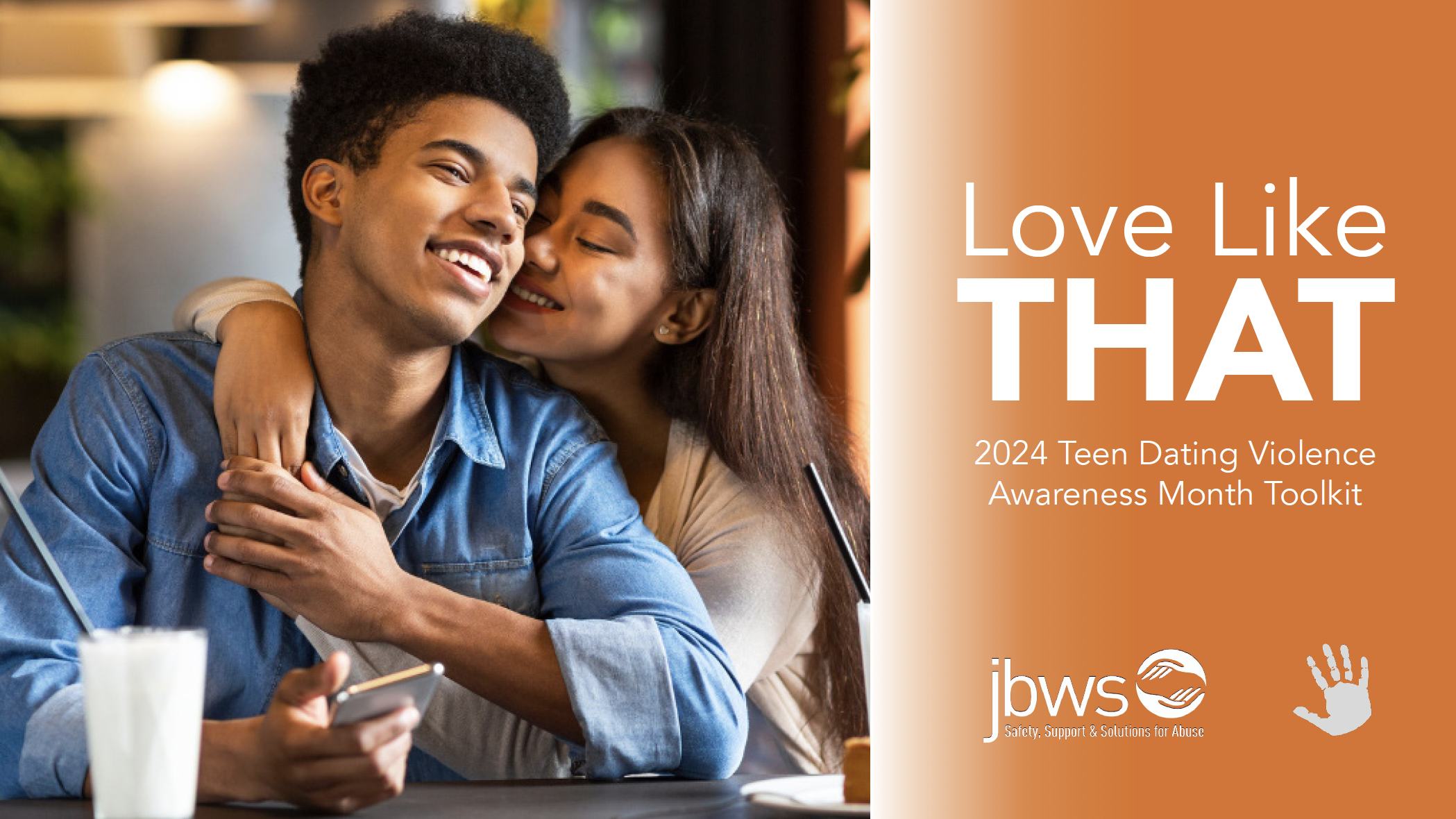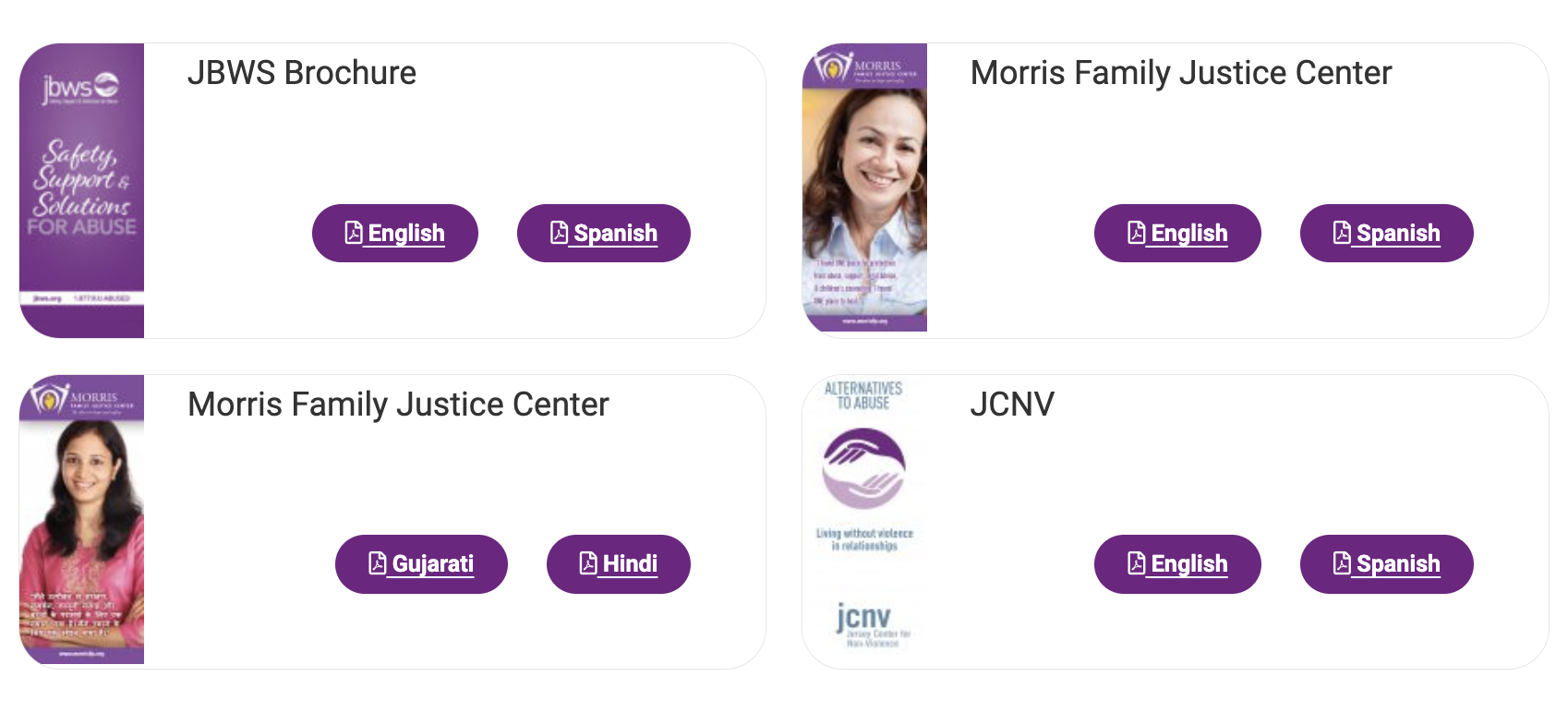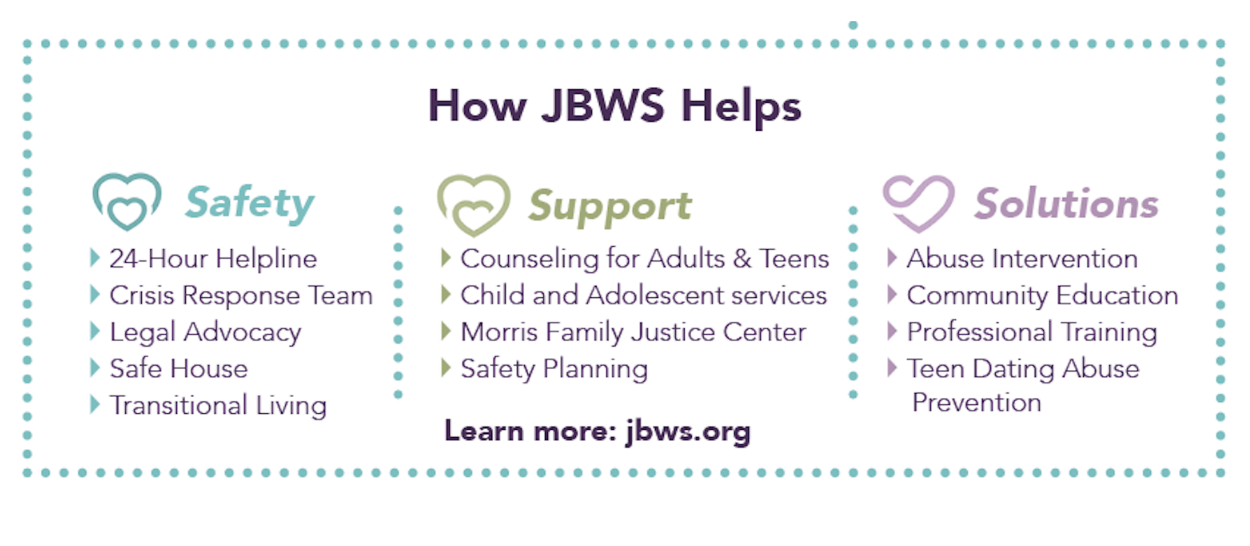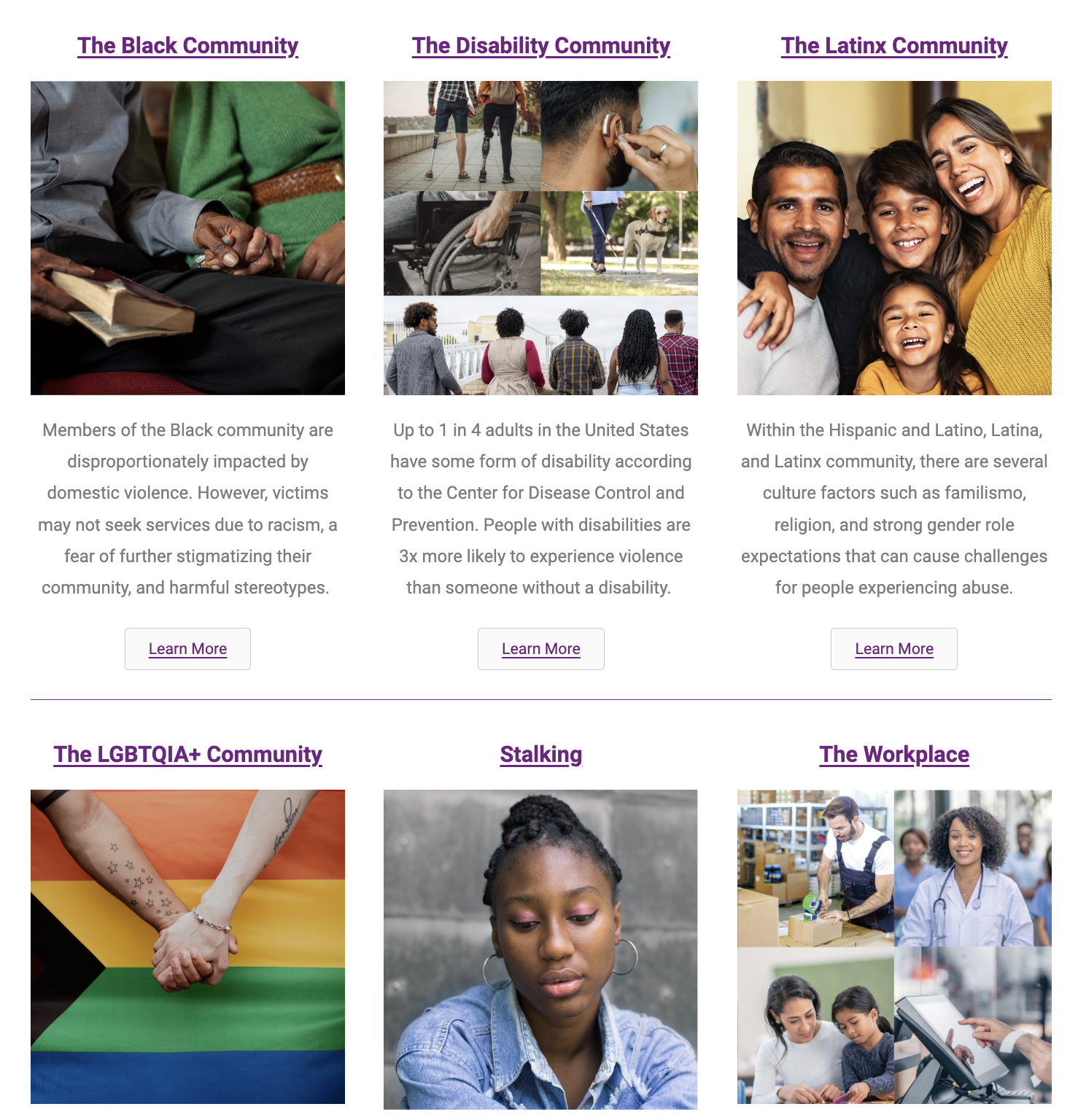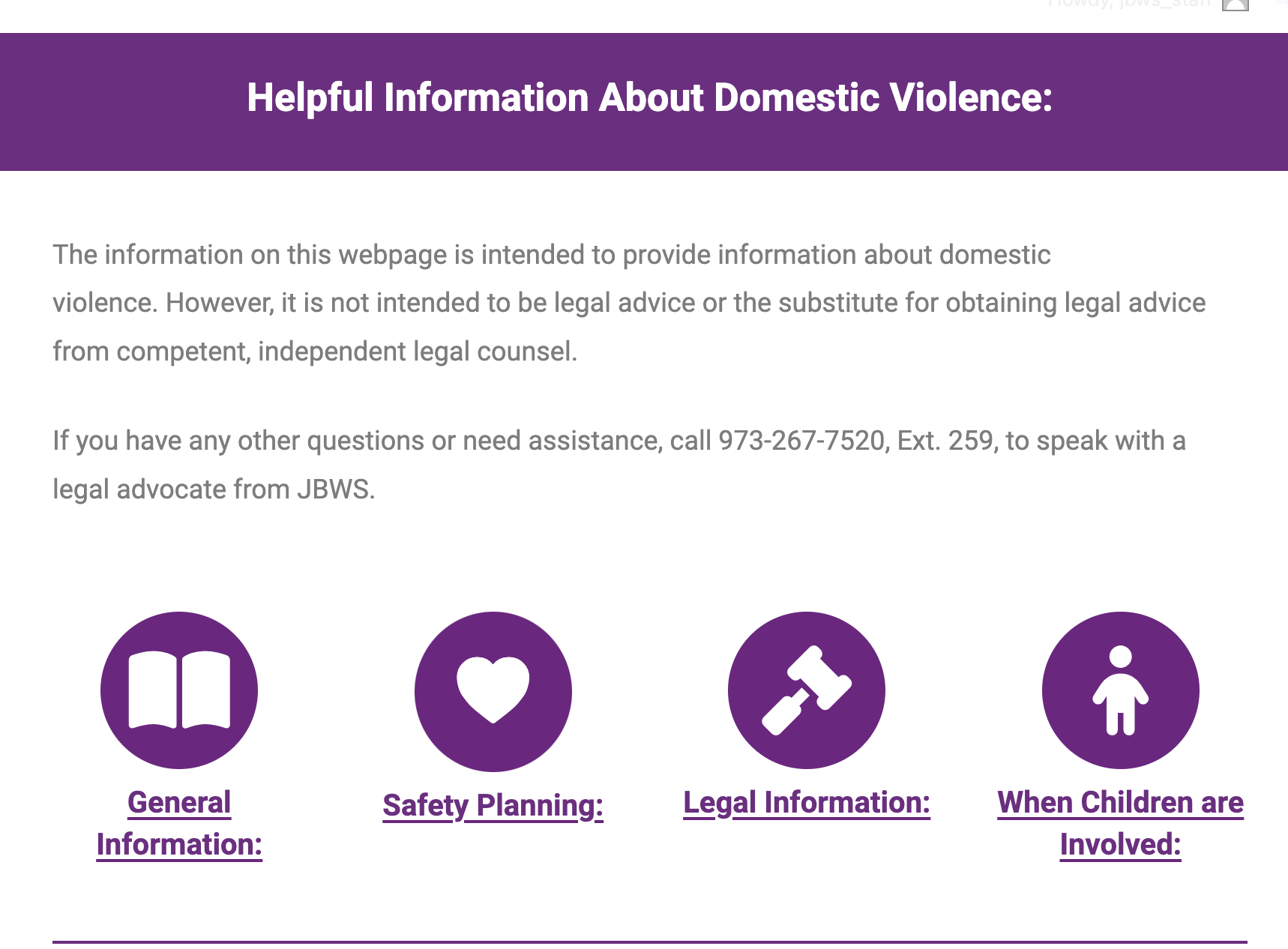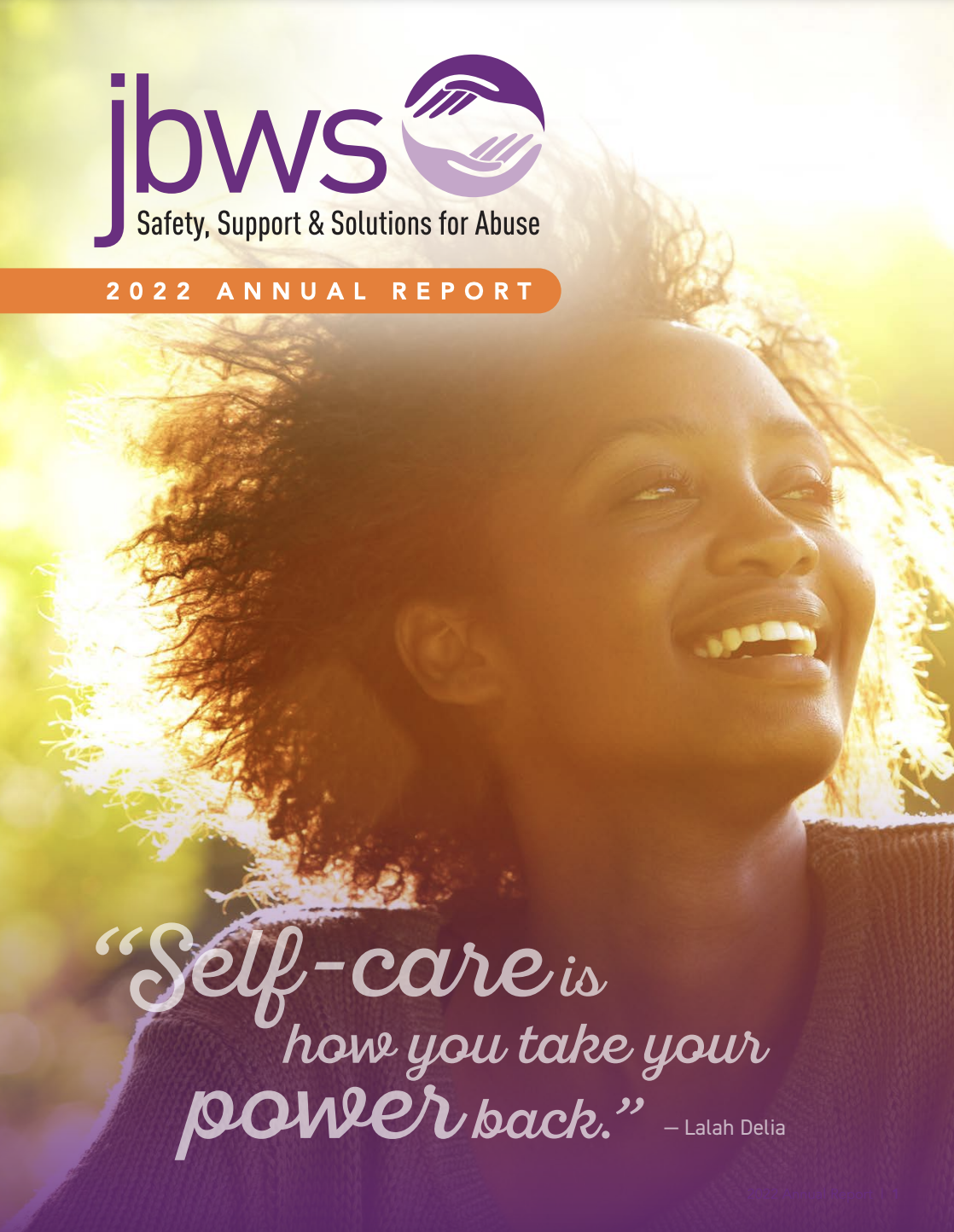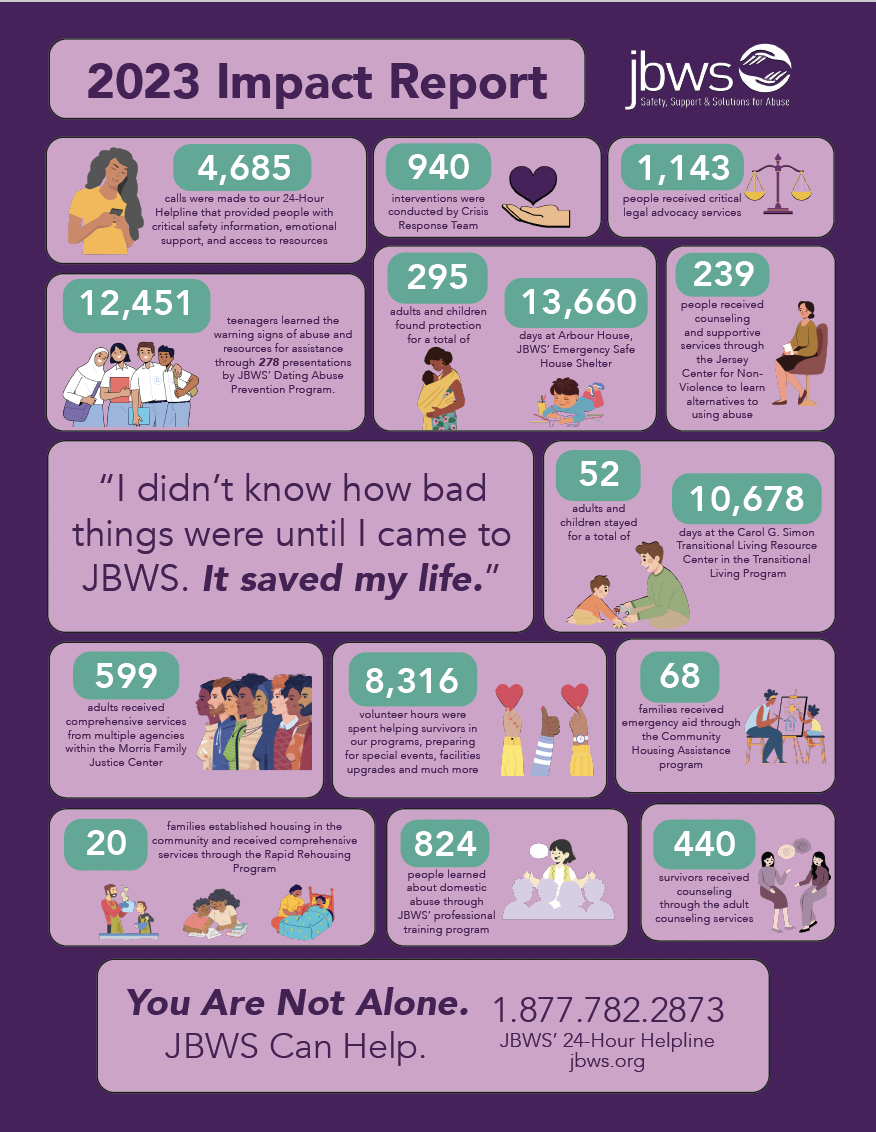Help us spread awareness
About JBWS' Services

About JBWS
Learn how to refer to JBWS in the community, what terms to avoid, what terms to use, and how to express concern in a compassionate, safe manner.

Shareable Content
With flyers, brochures, toolkits, and more, we have easily sharable content about JBWS and unhealthy relationships that you can send to your friends, family, and community groups.

Our Impact
Are you curious how many people seek services at JBWS? Our impact statistics detail how many people utilize our comprehensive, multi-faceted services every year!
How to Refer to Our Name, JBWS
While our organization was founded as the "Jersey Battered Women's Service" in 1976, this name no longer accurately reflects the population we serve. The terms "battered" and "women" exclude those impacted by domestic violence that don't fall into those rigid categories.
To be inclusive of all gender identities that experience abuse and to acknowledge that not all abuse is physical, we changed our name to JBWS in 2019. Our name is now reflective of the services we offer to ALL victims of domestic violence including cisgender, transgender, non-binary or gender non-conforming people.
When referring to JBWS, please do not use "Jersey Battered Women's Service" or solely speak about the women that we serve. We are trying to make sure that all people impacted by domestic violence feel comfortable seeking our support and that our name doesn't deter anyone in need from reaching out.
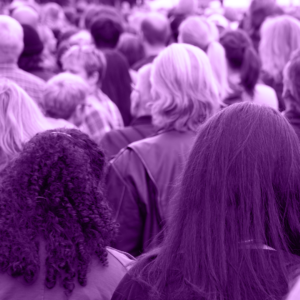
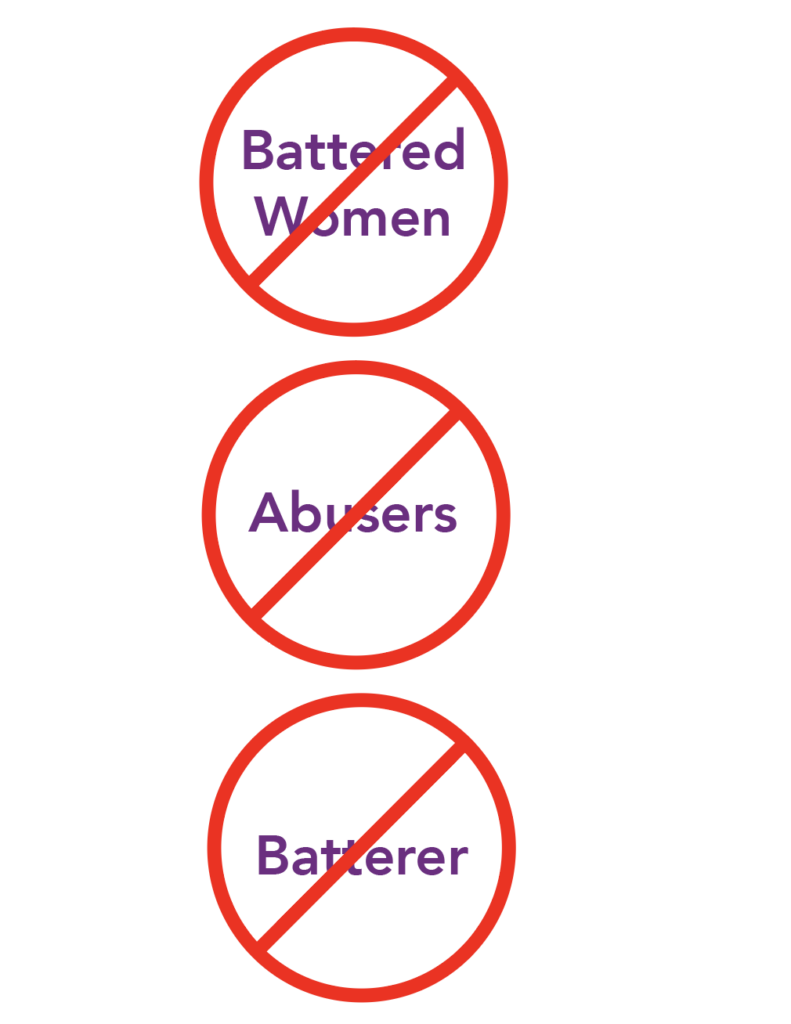
How NOT To Refer to Abuse:
When speaking about people who experience abuse, be sure to not include these terms.
Battered Women: Referring to people who have experienced domestic violence as “battered women” makes it seem like this is an issue only women can experience. It is not inclusive of other gender identities that experience abuse. Additionally, the term “battered” implies physical violence, which is only one of many types of abuse a person can endure.
Abusers: Labelling a person as an abuser can often deter them from recognizing their behaviors and seeking help at JBWS’ Jersey Center for Non-Violence (JCNV). Since JCNV’s mission is to educate people about abusive behaviors and teach people to overcome these dynamics of power and control, we refer to people as those who use abuse and abusive partners, not abusers. Learn more about JCNV.
Batterer: This is an outdated term that doesn’t fully capture the scope of abusive behaviors. Not all people who choose abuse in their relationships are going to engage in physical violence. They may implement financial, spiritual, status, or emotional abuse and that is not adequately expressed by the term “batterer.” Additionally, using this term may deter someone from recognizing their behavior and seeking help. Learn more about the various forms of abuse.
How To Express Concern:
When you suspect abuse in someone's relationship, the first step is to become educated and the second is to show C-O-N-C-E-R-N.
By following the steps in this document, you will be able to express your concern in an effective, compassionate manner that doesn't criticize or judge the person experiencing abuse.
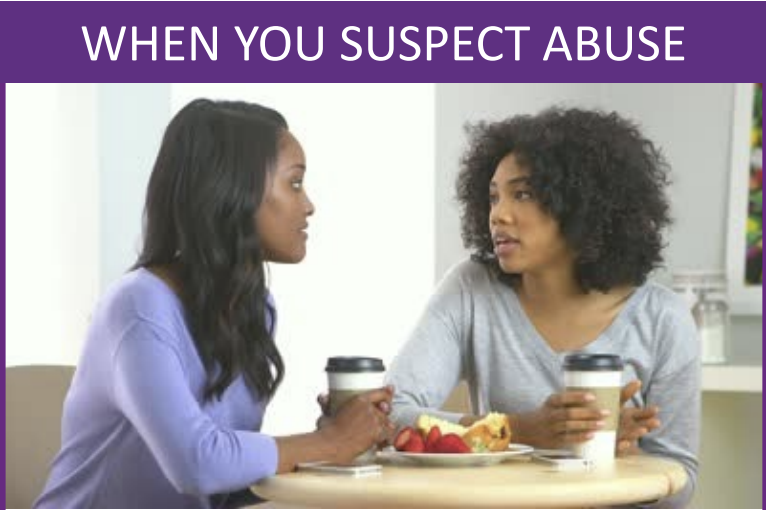
Shareable Content
Agency Videos
Find answers to your most frequently asked questions
"Aren't domestic violence shelters just for women?" "Why would you work with people who use abuse?" "My friend doesn't have documentation to be in this country, can they access services?" These videos are designed to answer any questions you might have about JBWS and the services we offer.
How Domestic Violence Intersects With....
Learn how abuse may present in different communities
Did you know that people with disabilities are 3x more likely to experience violence than someone without a disability? Or that 40% of Black men have experienced intimate partner violence and that 76% of all domestic violence homicide victims had also been stalked in the year before their murder?
If not, visit our "How Domestic Violence Intersects With..." page to learn more about how abuse is perceived in numerous different populations and how that may impact how readily someone experiencing abuse may reach out for assistance.
Helpful Information About Domestic Violence
Find comprehensive information about domestic violence
Are you interested in learning more about safety planning, restraining orders, the impact of domestic violence on children, the power and control wheel, and much more? Then see our "Helpful Information About Domestic Violence" page.
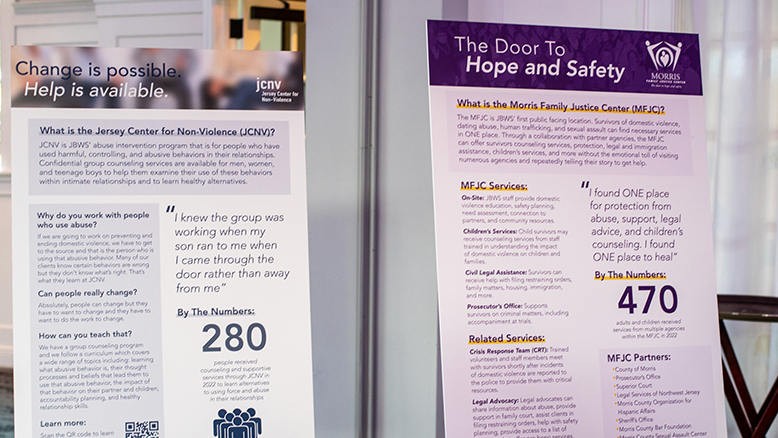
Program Overviews
Find overviews of JBWS' programs
Download these documents to learn even more about JBWS' services.
Social Media Toolkit
Find pre-made social media posts
Social media is a powerful tool for combating domestic violence because it can reach people who have otherwise been isolated by an abusive partner. Since 1 in 4 women, 1 in 7 men, and 1 in 3 teenagers experience dating, domestic, or partner violence, it is highly likely that a member of your social circle is currently experiencing abuse.
Our Impact
Helpline Callers
received confidential crisis assistance, support, information, and referrals in 2023
Interventions
were conducted by members of JBWS' Crisis Response Team in 2023
Days spent
at Arbour House, JBWS' Emergency Safe House Shelter, by 203 adults and children in 2023
Teenagers
learned the warning signs of abuse and resources for help in 2023
